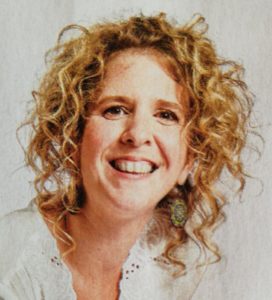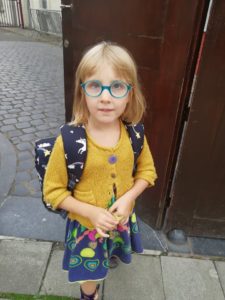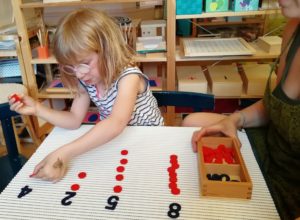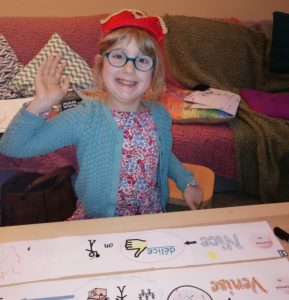
After struggling to send her daughter Lisette to an ordinary school, Christine Dufour founded the NGO “On souffle dans ton dos” (we blow in your back) to help children with disabilities to be included in mainstream school. Four years after its creation, the NGO has about sixty volunteers who support sixty children in Belgium.
Inclusion Europe met Christine Dufour who dares to believe that an inclusive society is more than a sweet dream.
You can also read the interview in French.
How was the NGO “On souffle dans ton dos” founded?
The creation of the NGO was somehow of a necessity when I found myself facing a wall with my “extra-ordinary” daughter. Lisette carries a rare genetic mutation that causes autistic disorders, intellectual disability and developmental delay.
Since the age of three, Lisette has been attending mainstream school. But I quickly realized that it was essential to put in place something that could help and support her in her learning. The teacher was also frustrated that she could not supervise Lisette as she wanted. I then looked for someone who wanted to give ½ day a week to support my daughter at school to help her understand the instructions and to adapt activities and teaching materials to her needs. A pensioner came forward and agreed to help my daughter at school. This proved to be a real help for Lisette and the teacher. That is how I came up with the idea of creating the NGO in order to help other children with disabilities to be included at school.

How does your NGO promote inclusive education?
The NGO sets up individual support within mainstream schools. A volunteer helps a child in the class and becomes a support for the child and the teacher. It is challenging to make each project coherent and adapted to the child’s environment and needs. To this date, the NGO has about sixty volunteers who support about sixty children with disabilities all over Belgium.
Do you have any future inclusive projects?
We have the project to create a resolutely inclusive school (preschool, primary school, and secondary school). This school would welcome children with and without disabilities. Teachers would use new pedagogies (known as active learning pedagogy) and would be trained to supervise any child with complex support needs.
What are the benefits of inclusive education?
I truly believe that inclusion of children with disabilities is beneficial for all. Children with support needs are pushed to do better. Their inclusion in the class brings a spirit of tolerance and empathy. It is also an asset for the teachers, who are encouraged to evaluate and adapt their teaching methods to the needs of every child.

How does Lisette experience her inclusion in mainstream school?
Being included at school certainly helps Lisette understand the world around her, the behaviours that are appropriate and those that are not. She continues to amaze us every day. She starts reading, has an extremely rich vocabulary, and loves mathematics. She is very curious about the world around her and is interested in many things. I have no doubt that inclusive education plays a big role in all of this!
Her teachers tell me every year that her inclusion in ordinary school is a real asset, and not only for her. One of her teachers once told me that her innocence and freshness are a breath of air in everyday life. Lisette brings a climate of kindness and tolerance into the classroom. The children develop a sense of mutual aid, and the teacher doesn’t even have to impose it!
What needs to be done for schools to be truly inclusive?
The lack of financial and human resources is a never ending-problem. A teacher who has 25 learners in his/her class, including children with disabilities, will not be able to use individualised teaching methods without financial and human resources.
I also strongly believe that it is the school system that must adapt to the needs of each child, not the other way around! Learning objectives should be adjusted to suit the individual needs of each child.

Take part in our campaign “#ThatsWhatILearned” on the topic of inclusive education! What did you learn in school, in your family, in life?
Let us know! All material is also available in easy-to-read.





